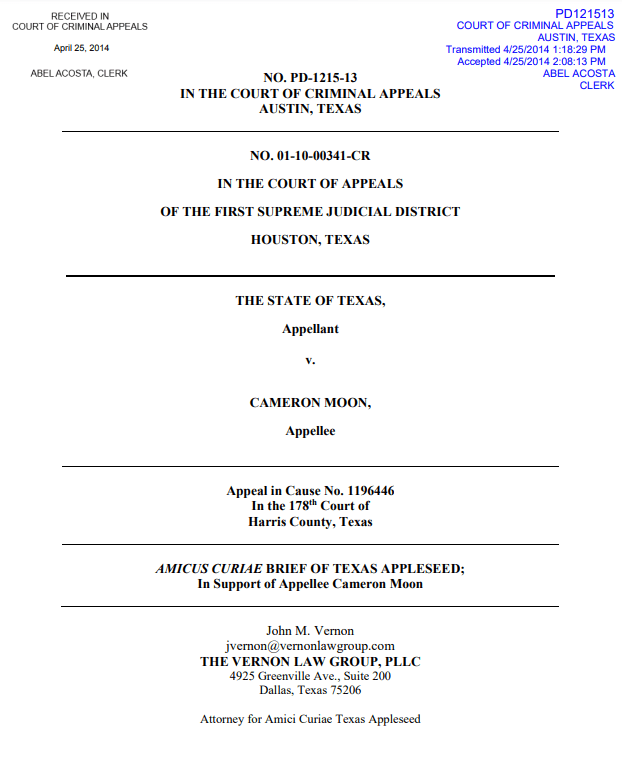
Summary of Argument
The issue before this Court is under what circumstances a juvenile court may waive jurisdiction of a youth and transfer the youth to adult court under Section 54.02 of the Texas Family Code. The State argues that the Court of Appeal should have considered the sufficiency of the evidence to support the lower court’s transfer order based on the weight of a single factor: the circumstances of the alleged offense. The State’s argument is flawed and encourages an unconstitutional interpretation of Section 54.02.
The United States Supreme Court has recognized that “waiver of jurisdiction is a ‘critically important’ action determining vitally important rights of the juvenile.” Kent v. United States, 383 U.S. 541, 546 (1966). In the same vain, this Court has held that “transfer to criminal district court for adult prosecution is ‘the single most serious act the juvenile court can perform … because once waiver of jurisdiction occurs, the child loses all protective and rehabilitative possibilities available.” Hidalgo v. State, 983 S.W.2d 746, 755 (Tex. Crim. App. 1999) (internal citations omitted). Given the unquestionable importance of the waiver issue on the lives of youths, the Texas waiver statute, codified at Section 54.02 of the Family Code, requires a juvenile court to conduct a full investigation and hearing that takes into account numerous factors before authorizing waiver and transferring a child to adult court. Tex. Fam. Code Ann. § 54.02
Disregarding Kent, Hidalgo, and the plain language of Section 54.02, the State contends that the Court of Appeal – which found that the lower court abused its discretion by issuing a waiver ruling unsupported by the record – should have upheld the lower court’s waiver ruling based on the strength of one factor alone: the circumstances of the alleged offense. In other words, the State claims that a proper interpretation of Section 54.02 should focus on only one factor and should ignore the other three factors enumerated in Section 54.02(f), namely: the sophistication and maturity of the child; the record and previous history of the child; and the prospects of adequate protection of the public and the likelihood of the rehabilitation of the child by use of procedures, services, and facilities currently available to the juvenile court.
The State’s arguments do not withstand scrutiny. Section 54.02 and the jurisprudence that supports it require juvenile courts to consider all of the factors enumerated in Section 54.02(f), not just one. Applying the State’s interpretation of Section 54.02 would undercut the individual inquiry that is required by the waiver of jurisdiction analysis and would flood Texas’ adult criminal courts with youths who do not belong there. Juveniles and adults are inherently different, and the Juvenile Justice Center offers rehabilitative and protective benefits for juveniles like Cameron while adult incarceration at the Harris County Jail would only be detrimental and cause irreparable harm.
For these reasons, as well as those set forth below, this Court should reject the State’s interpretation of Section 54.02 and should uphold the Court of Appeal’s determination that juvenile court abused its discretion by misapplying the Texas waiver statute and transferring Cameron to adult court.